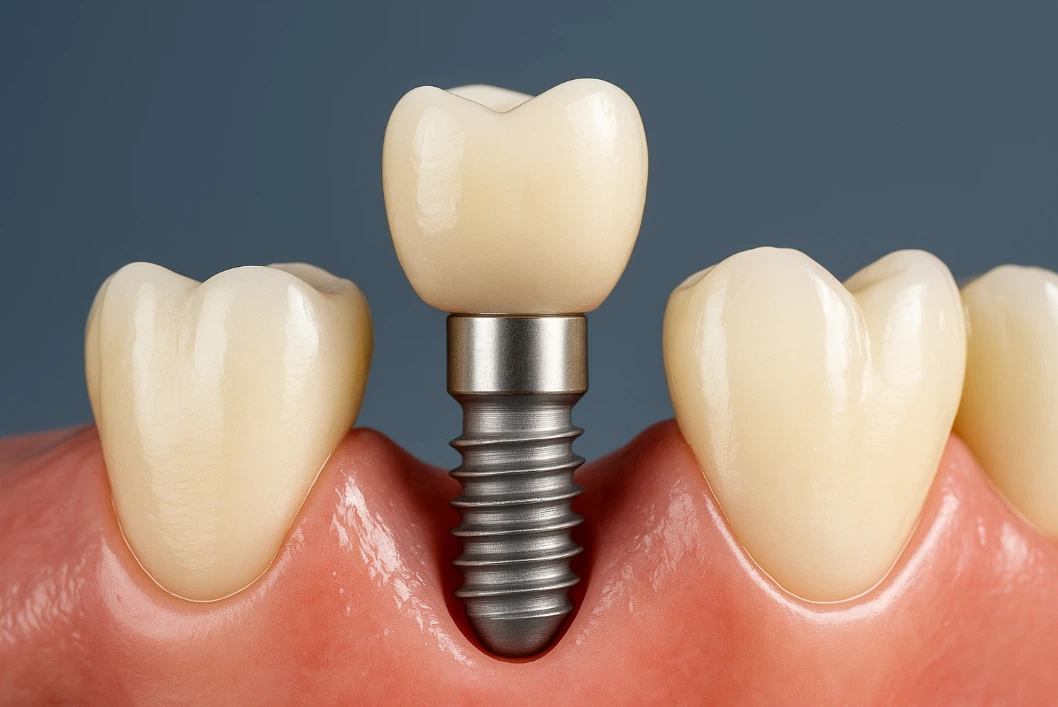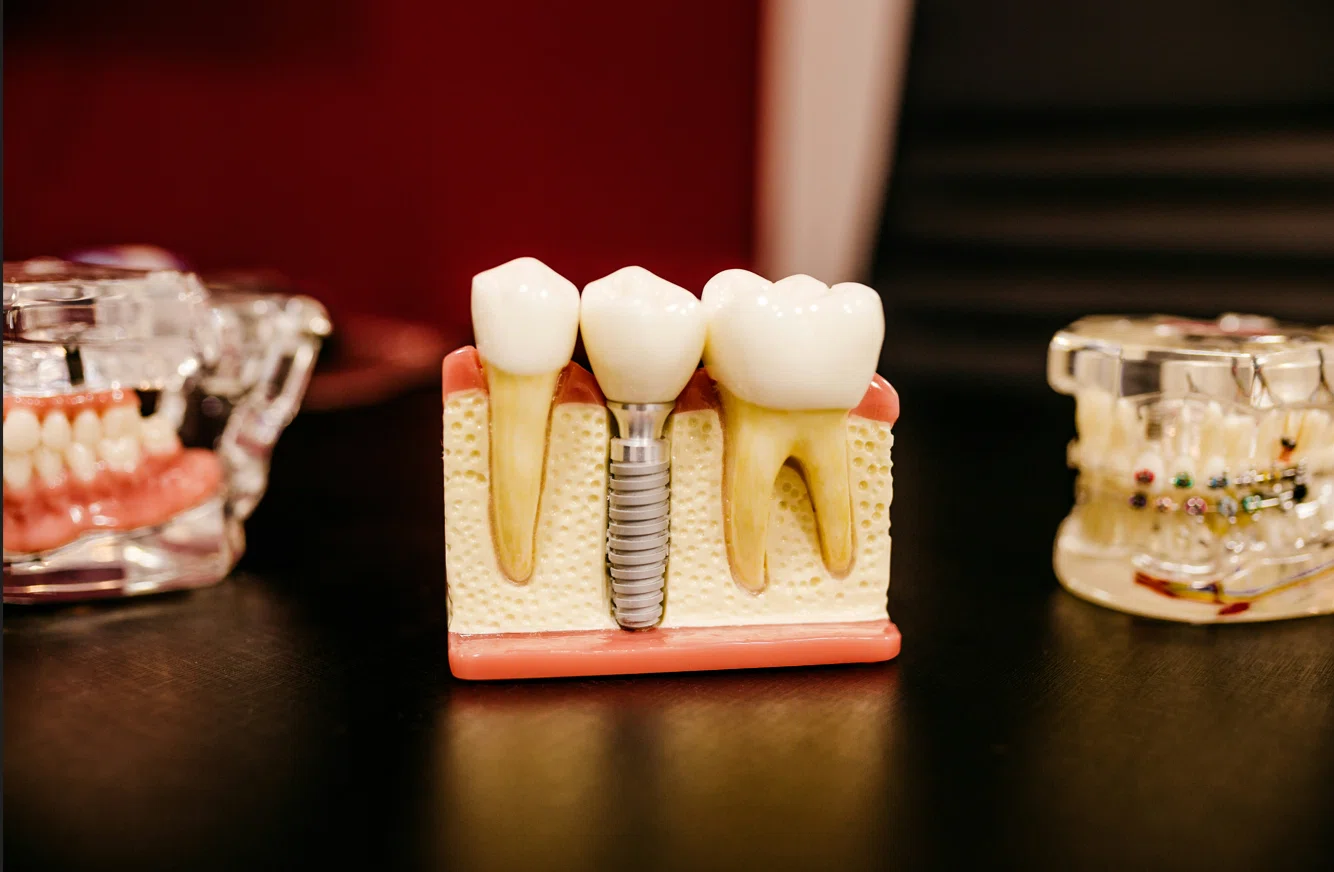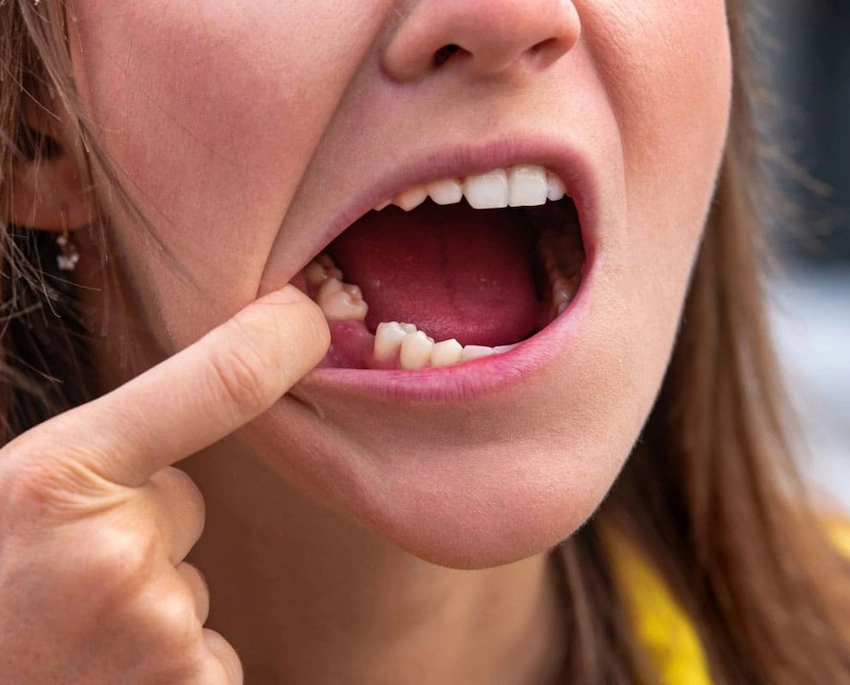What Causes Tooth Loss?

Tooth loss is a very common issue that many people go through, and it is far from just the appearance of your smile – it can have a major impact on both your overall oral health and confidence levels. No matter whether your tooth was lost in an accident, due to a lack of proper oral hygiene, or gingivitis, it may lead to the inability to eat, speak, or feel confident in society. However, the field of dentistry keeps up with progress and is ready to provide the best treatment for tooth loss, one of which is, for instance, getting dental veneers, implants, and a Hollywood Smile in Lema Dental Clinic situated in Istanbul, Turkey, which is affordable and opens up the possibility of changing your smile and life. The source has been updated in order to provide the most recent information on the causes and symptoms of periodontitis and the range of treatment options that can help you regain your smile. The article below discusses the factors contributing to tooth loss as well as the preventive measures and treatment choices that are available to restore your smile.
What Leads to Teeth Loss?
There are many causes of tooth loss, with some being preventable, and they can occur to any person. The more we know about these causes, the more prepared we are to prevent our teeth from getting lost. This list is composed of the most common reasons for tooth loss:
1. Tooth Decay
The main cause of tooth loss is dental caries. When sugar from food or soda is consumed, the bacteria in the mouth feed on it and produce an acid that erodes the enamel. In the long run, the acids will create holes in the teeth from the inside, and the process of tooth decay will continue without stopping, making the cavity deeper and deeper, subsequently resulting in the tooth becoming loose and dropping out. The guaranteed and best method to prevent yourself from tooth decay is regular brushing and flossing, and going for dental cleanings and check-ups frequently with the dentist.
2. Gum Disease (Periodontitis)
Gum disease initially starts as gingivitis, which causes the symptoms of red, swollen, and puffy gums. If you do not seek help for the above-mentioned health problem, it becomes serious and is transformed into periodontitis, a condition in which the destruction of the bone and tissues that support the teeth takes place. This shows that you should not only rely on brushing and flossing alone, but also always have your teeth cleaned by a dentist so as to have healthy gums and fight against gum disease better.
3. Trauma or Injury
Teeth can be broken, knocked out in accidents, falls, or during sports fights. Consequently, oral injury usually involves various kinds of injuries like fractures, entire teeth knocked out from their sockets, and so forth. The trauma experienced in the mouth may cause a tooth to shake and render it useless, and if not taken care of, this tooth will fall out one day. In cases where the tooth can still be restored, the treating dentist might suggest canal treatment, or the tooth could also be repaired with a crown. Having done a thorough examination and the tooth is still unrepairable, the only option left would be to pull the tooth and fit in its place an implant or a bridge.
4. Aging
In elderly people, typical decay in teeth is expected to happen. Many things contribute to it, e.g., enamel grows thinner, teeth tend to develop more cracks, thus becoming prone to decay, and the jawbone in the vicinity of the gingiva gets naked. Besides, gingival aging bugs cause more gum problems, and sometimes the result is the loss of rows of teeth. The stem of the tooth, or rather the bone part that holds the tooth, becomes less solid, and subsequently the teeth become mobile and even fall out. Furthermore, next to dental visits, a balanced diet, and the proper cleaning of the mouth, one more condition is required in addition, i.e., keeping one’s teeth healthy so that they may be able to function in old age.
5. Poor Oral Hygiene
Failure to brush and floss your teeth results in the accumulation of plaque, which is a major factor in cavities, and also leads to the occurrence of gum disease. As time goes by, if the process of oral hygiene is not done as well as before, one is to suffer from a situation (a) in which the tooth falls out due to the wear and tear caused by the presence of bacteria. To maintain your teeth’s health, you must clean your teeth with a brush twice every day at least, and do the flossing daily, just like the cleaning at the dentist’s place every six months, which is essential to prevent the occurrence of tooth loss.
What Are the Symptoms of Tooth Loss?
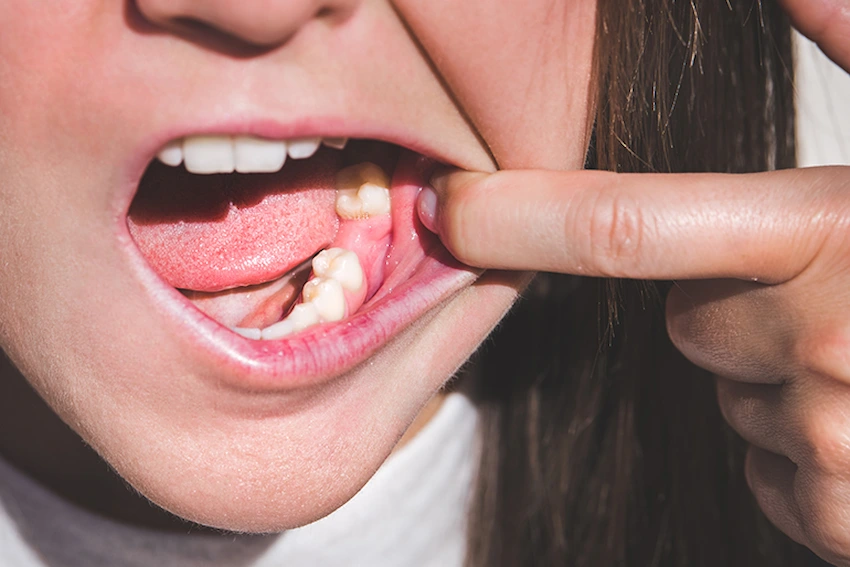
Most often, tooth loss is not an abrupt event, but it is usually preceded by typical symptoms of risk. Thus, knowing these symptoms early could be of great advantage to you and help detect it at an early stage. The very common symptoms of tooth loss are:
1. Loose Teeth
A tooth’s wobbling state signifies that it can fall out at any time. The discussion of causes is in many different ways. The most frequent of them are advanced periodontal disease, trauma, or tooth decay. You should, in case of realize that the tooth shifts, urgently visit a dentist who can promptly determine what the problem is and treat the tooth accordingly.
2. Pain or Sensitivity
If you have pain or sensitivity when you eat anything or drink hot or cold, then you may have a tooth with either decay or damage. The situation when you have pain or discomfort in your teeth that is always present usually foreshadows that your tooth may be heading for decay or may be lost.
3. Swollen or Bleeding Gums
One of the obvious signs of gingivitis is that the gums are not only swollen, but they can also be made to bleed with little or no effort. The progression of gum disease, when not treated, is the main cause of tooth support loss, leading to the loss of some teeth. If the symptoms above are honed in the absence of any form of treatment, there are chances they will indirectly cause some teeth to be lost.
4. Bad Breath or Unpleasant Taste
Bad breath that always stays and a bad taste in your mouth are the two most important symptoms related to oral hygiene that could help in spotting gum infection or tooth decay. If left alone, tooth extraction may also be a consequence of these problems. The right habits are oral hygiene and seeing a dentist regularly to prevent these issues from happening.
What Are the Risk Factors for Tooth Loss?
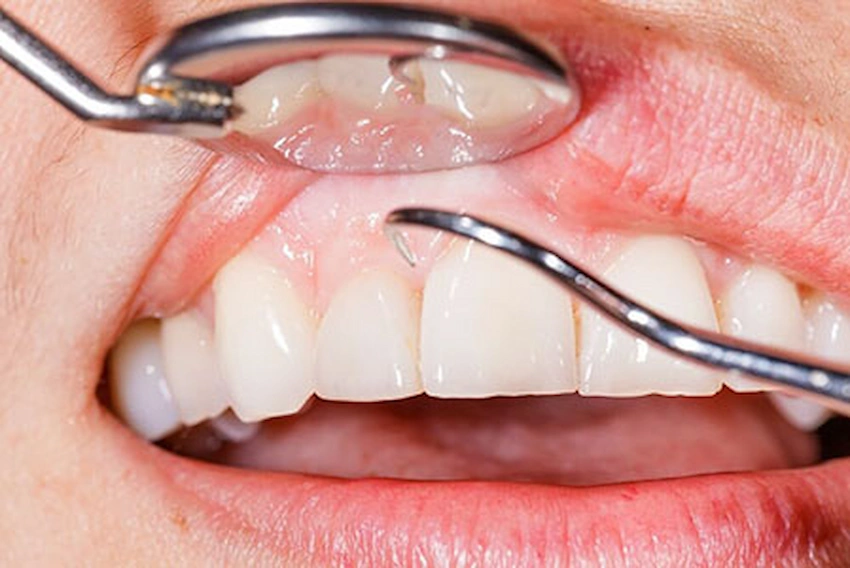
Find below the descriptions of factors that might increase an individual’s chance of suffering from teeth falling out. The factors that are talked about are, in some cases, preventable and can be changed by a person, while others are genetic and could be related to a family inheritance or the age of a person. The below are some of the major causes of tooth loss:
1. Smoking
The occurrence of gum disease has a strong connection with smoking, and accordingly, in this case, the reduction in the number of teeth is also a significant reason for tooth loss. It changes the gums and reduces the blood flow of the tissues; as a consequence, the recovery time of the tissues may be longer, and they become very weak in fighting against the bacteria and viruses that cause periodontal diseases. Another reason for smokers’ tooth loss is that their resistance to caries is weak, and the healing process after dental treatment is very slow.
2. Poor Diet
An unhealthy diet that is full of sugar can accelerate the process of developing tooth cavities, and a lack of basic nutrients such as calcium and vitamin D can result in the degradation of the hard tissues in the teeth and bones. The most important dental care advice is that a person should have a balanced and healthy diet to be able to protect the teeth and gums from decay and plaque.
3. Genetics
Certain people are unfortunate enough to inherit problematic genetic traits, which make them more susceptible to gum diseases, tooth decay, and many other conditions that affect the mouth. If your family has a history of dental problems, the most essential thing is to avoid tooth loss by means of being active in oral hygiene and having regular dental check-ups.
4. Chronic Health Conditions
It is conceivable that certain types of diseases, in particular, the above-mentioned ones (diabetes, heart, and autoimmune diseases), can be a challenge to tooth loss as well, contributing slightly to the diagonal running odds of the disease. These diseases can lead to several gum and bone issues, and therefore, it is natural that the teeth might fall out in the end.
5. Fancying Dental Health
If you do not clean your brush or you pass on flossing, your teeth and gums will have a plaque build-up, which will eventually form cavities and gum disease if no action is taken. In case of the absence of an appropriate treatment, these problems will only get worse and finally end up in tooth loss.
What Are The Consequences of Tooth Loss?
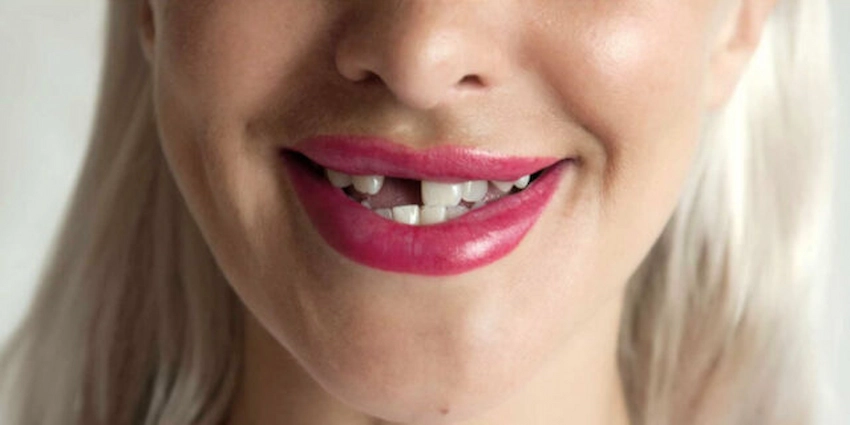
The issue with not having a tooth is not just limited to the vacancy on the face to have a perfect smile, but it can give birth to several complications that can hurt oral health and even on the whole body. The parts of the body with which the loss of the tooth is related refer to the consequences of the loss of the tooth as complications. Some of the diseases connected to the loss of teeth are as follows:
1. Moving Teeth
When something is removed, something else is replaced in its position. Simple, right?
This is what takes place if a tooth falls out – the other teeth might move to occupy the left space, leading to crowding, disarray, discomfort while biting and speaking, and eventually, they become so out of place that you find it hard to chew and talk properly. Through the use of a dental bridge or an implant, this can be prevented.
2. The Challenge of Bone Loss
The area previously occupied by the tooth and is now empty may lose enough of its mineralization that it becomes a decomposing bone. It is very painful to lose the essential parts of the bone. It happens that the bone, after a year of the elimination of the tooth, is resorbed, and that this process affects the overall shape of the jaw and the health of the mouth. In the future, bone atrophy is one of the main reasons for the failure of the placement of a dental implant in the tooth gap.
3. Problems with Chewing or Speaking
When you let some of your teeth get pulled out, you won’t be able to speak your best, and it will be as if you don’t have many food options. The speech will be inefficient and only the food that can be eaten will be at a minimum, which, in addition to the immediate form, will take away a person’s happy mood. People who have lost their teeth will be emotionally, mentally, or physically less prime than before. You should be cautious not to eat the fruits of the earth and other torments of mankind. Result: a rather black-humored and selfish person will be an invariable feature in your life.
4. Decrease in the Fight for a Job
Possibly, it could have a devastating effect on anyone’s self-esteem if they were seen without teeth, and for sure not less than several individuals would suffer a psychological trauma to a significant extent. E.g., A person’s mood is lifted after getting some teeth pulled out, so there are better chances to get a job, but it would be very clear that it will not be possible. Or let’s say that the oral cavity of a diabetic was so badly affected that not only did he get malnourished, but also he was both frustrated and enraged simultaneously. The extreme fury of his could’ve probably triggered situations of small scales to turn up to crises of enormous scales.
What is the Method of Dealing with Tooth Loss?

It’s a significant problem, yet in the field of modern dentistry, multiple efficient solutions are used to treat tooth loss. Here are some of the most common treatment options for tooth loss:
1. Dental Implants
Dental implants are undoubtedly one of the most effective and preferred methods of tooth replacement. The placement of a titanium post into the jawbone is the first step, and then the post is used to attach a crown to it. With dental implants, an individual can smile, chew, and even speak as naturally as before, and they are durable enough to last for many years if properly cared for.
2. Dental Veneers
Dental veneers refer to the wafer-thin, custom-made shells designed to cover the front surface of teeth. Not only can this method fix the look of broken, chipped, or even missing teeth, but it can also provide a very natural effect and even improve your smile.
3. Bridges and Dentures
Bridges can replace one or two teeth that are missing, and dentures are for those who want multiple teeth replaced. While both are more economical compared to implants, they need to be checked and maintained frequently.
At Lema Dental Clinic in Istanbul, Turkey, we have specialized in dental implants, veneers, and full smile makeovers in the effort to restore your teeth and to rebuild your lost confidence. This way, we have a variety of options for your different needs, starting from filling in the gap typically left by a missing tooth and all the way to a complete smile makeover.
FAQ: What Causes Tooth Loss?
Decay or injury is the most common cause of tooth loss in children. The shedding of milk teeth is part of the development process, but permanent teeth can also be lost prematurely when there is any trauma or the cavities are not treated.
There is no specific answer as it depends on the nature of the treatment. Investigation found that for dental implants to become fully integrated with the bone, it might take them a number of months. Alternatively, veneers and bridges need only a few weeks of recovery.
Poor oral hygiene, trauma, or genetic factors are the main causes of tooth loss among young people. It is very important for young people to maintain good oral care so that early loss of a tooth is avoided.
Not only does smoking lead to gum disease, a major factor in tooth loss, but it is also a very influential factor. The habit weakens the gums, it makes the body less equipped to fight invading microorganisms (infections), and consequently, it becomes an uphill task to ward off tooth decay.
The absence of a tooth can lead to the phenomenon where teeth next to it will take the vacancy, thereby increasing the chance of teeth misalignment and mouth changes. Additionally, the loss will result in bone atrophy, which will make the tooth that is missing hard to replace with an artificial one later.
